Will Bangladeshi film festivals usher in a new era for cinema?
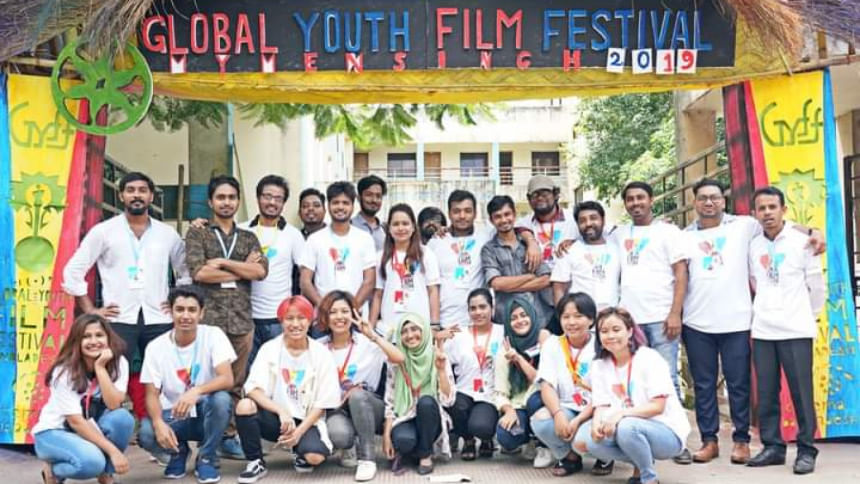
These days, watching a movie, for city dwellers, can almost be likened to having jhalmuri—it's easily accessible and sometimes fulfilling as well. Anyone can take a seat in front of their TVs or download a Bengali or English movie, sometimes even a Tamil hit, to quench their thirst for entertaining cinema.
Aside from this, if you're an avid fan of films, with a niche taste in movies, then you can try out the different film festivals in Dhaka, that are usually readily available—at least if you know where to look for them.
Most film festivals in Dhaka are international ones, which usually entails that the audience can experience the work of both local independent filmmakers and foreign films simultaneously. Moreover, sometimes the audience is able to interact with the directors and actors too.
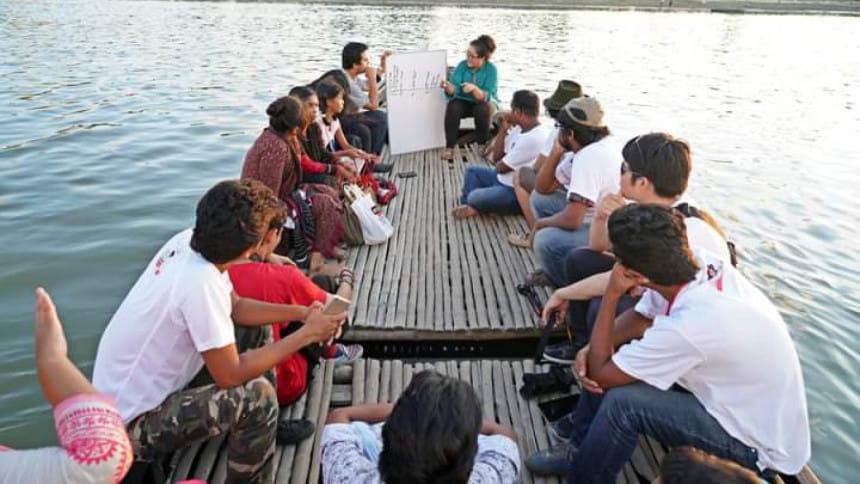
Film festivals in Bangladesh date back to 1958. In 1965 films from Poland, Czechoslovakia (currently the Czech Republic), France, and many more countries were shown in Balaka theatre. In 1981, a free Bangladesh held its first independent film festival. 35 films from 15 countries around the globe were submitted. By 2008, the wider general public were able to better access and take an interest in film festivals.
Despite the progress over the years, a question still lingers, are film enthusiasts coincidentally all residing in Dhaka? Do people outside Dhaka not have an interest in these rural areas?
This question began to form in my own head when I was working for a film festival. Dhaka International Mobile Film Festival (DIMFF) gave me the opportunity to learn the ins and outs of mobile filmmaking from young filmmakers. This festival, under the supervision of ULAB, is organised every year, where they hold workshops for a plethora of film-related activities—from sessions on making full-fledged films, down to organising film reading sessions.
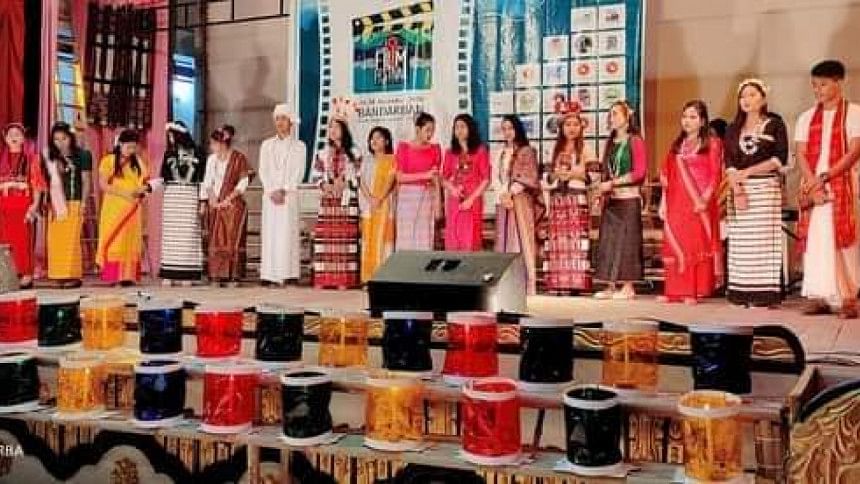
Global Youth Film Festival Bangladesh is a traveling film festival organised by "Cinema Bangladesh". So far, the festival has hosted shown films in Laxmipur, Rangpur, Mymensingh, Bandarban, and Natore. However, they have not organised a festival in Dhaka as of yet.
In a conversation with the director of the Global Youth Film Festival Bangladesh, Jisan Mahadi, I asked about why this was a traveling festival. In response, Mahadi discussed the somewhat 'cheeky' history of this festival.
"After admission to university, I had the chance to attend and have a really great experience at a film festival in the Public Library Auditorium of Dhaka. Whilst everyone was talking amongst themselves about films that gave them joy, I kept imagining what would happen if such an event was held in Laxmipur—the city where I grew up. After just attending one film festival, I made the decision that I would organise an event like this in Laxmipur," said Mahadi.
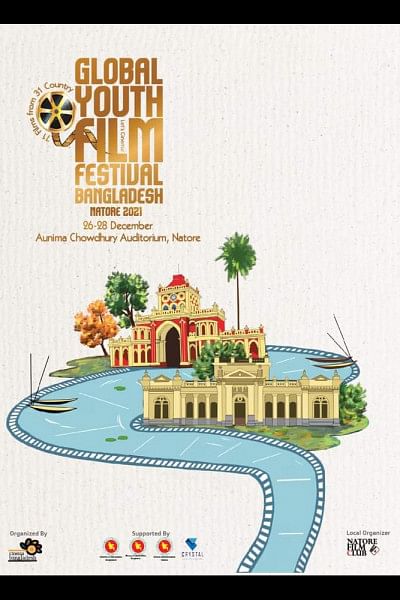
"Laxmipur is still very conservative, some villagers even believe in superstitions and I thought films could be a defining instrument in tackling this," added Mahadi.
Keeping this vision in mind, Mahadi worked with one of his university friends, Sadik, and went onto found the Global Youth Film Festival. Their first festival was conducted in Laxmipur, and they were able to observe first-hand that people from remote areas are not familiar with the practice of films.
When asked about how their first show went, Mahadi said, "People from these areas are not used to seeing foreign films. At our first festival, there was one film that we could not play in its entirety, just because it riled up the audience. We had to stop the screening, which ironically was also the one that had won the best film award at that festival. The particular scene that caused the problem, was one where a woman was smoking a cigarette. This immediately put the audience in a frenzy, with many complaining that we are leading the youth down the wrong path by making such movies."
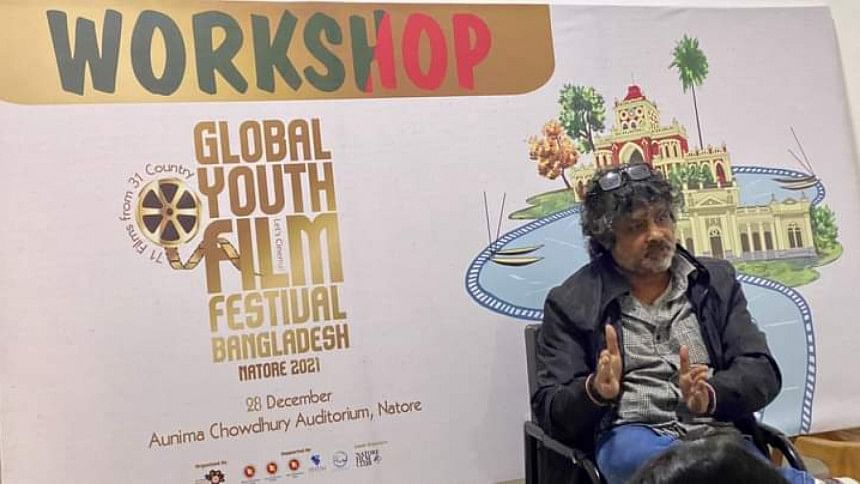
Breaking down the issue, Mahadi noted, "The problem wasn't that there was a cigarette of course. Many people in Laxmipur smoke, people even openly sell and consume cigarettes in those areas. However, the issue was that this was a woman smoking. This was an experience!"
Having followed the local film festival scene, I was aware of the sort of traction it brings in on the daily. No matter how prestigious the festival is, if you took a peek inside, you would be faced with empty seats, loud speakers and a handful of dedicated film enthusiasts. Perhaps an excited family member or a begrudged crew can be thrown into the mix as well.
With this picture is mind, I asked Mahadi if they were able to fulfil their agenda. Being quite aware of the facts himself, Mahadi informed me that before arranging a festival in a particular area, his team sits down with the local organisations and engages them in discussions about what can be done or what input they have about the festival. He also noted that campaigns and talks in local schools and colleges, along with directly informing people how festivals would benefit them, was the key way in which their team went about promoting the festival.
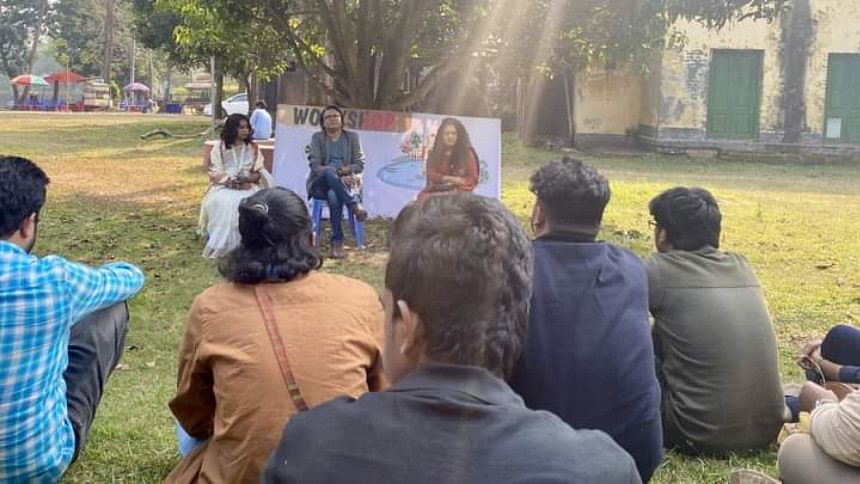
"Everything in our country is capital-centric. It is rare to find programmes of such stature outside of Dhaka, thus depriving the rural youth of the opportunity to enjoy films. We are trying to break this circle by arranging festivals in different parts of the country. As we are not based in Dhaka, we had to face many difficulties, one of which was not having a sponsor. However, none of that stopped us," concluded Mahadi.
Our conversation left me with many thoughts, but the one at the forefront is how our love for films know no bounds. If one knows where they can find films, what is stopping them from enjoying it?
For Dhaka dwellers I wonder, is it the sky rocketing ticket price or the ever-flowing metropolitan stress that restricts them from attending film festivals?
This interview left me with the impression that there is a gold mine of intellectual opportunity that can be utilised by those who work in the visual arts. Along with our goals for wider roads and cleaner air, we should also be thinking about making our country a place where film enthusiasts get the opportunity to learn and practice their arts.
It befalls upon us, the puppeteers of the silver screen to give it to them. By doing so, we will be opening new doors, welcoming fresher perspectives and bringing in potential foreign distributors. Which could, in turn give way for a blossoming Bangladeshi film industry.

 For all latest news, follow The Daily Star's Google News channel.
For all latest news, follow The Daily Star's Google News channel. 




Comments